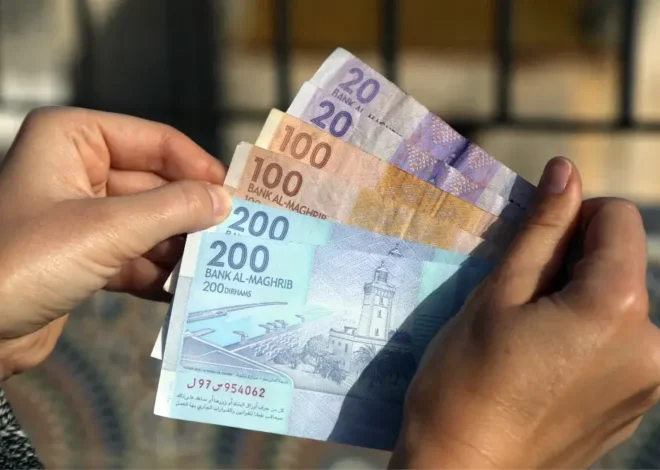
Rent a Car in Morocco: Everything You Need to Know
It is viable to rent a car while in Morocco since this allow one to self drive around Morocco from Marrakech city to the sandy beaches of the country or even the vast sandy desert. But if you’re concerned about the safety of your rented car, insurance, or the state of the road, here are the essential details that would come in handy if you rent a car in Morocco.
Is It Safe to Rent a Car in Morocco?
In general, like in most countries, renting a car in Morocco is safe as long as you exercise some caution. Most cities and airports have large automobile rental firms operating there that provide clean, contemporary cars. However, for those who are not aware with the driving customs of the region, driving in Morocco might be a bit of an experience. Traffic in cities may be a bit hectic, and road signs may not be as apparent in more rural locations.
To be secure:
- Be cautious at junctions since it’s possible that some cars won’t always abide by the right-of-way laws.
- Motorbikes and pedestrians might emerge out of nowhere (especially in Marrakesh), so keep an eye out, especially in crowded locations.
- For advice, use navigation programs (such as Google Maps) and drive conservatively at all times.
How to Rent a Car in Morocco
Getting a vehicle rental in Morocco is quite simple. This is what you must do:
- Select a Reputable firm: Booking through a reputable local agency or a well-known international firm (such as Hertz, Europcar, or Avis) is advised. This reduces the possibility of unstated costs and guarantees that you’re working with a reputable business.
- Reserve Online: Making reservations online in advance will ensure that you receive the best prices and that a car will be available for you. Examine rental regulations, read reviews, and compare pricing.
- Possess the Required Documents: A credit card in the driver’s name, your passport, and a valid driver’s license are required. Certain firms may demand an International Driving Permit (IDP) from non-EU nationals.
- Locations for Pickup and Return: For an extra charge, most companies let you pick up the vehicle in one city and drop it off in another, which is useful for lengthy road journeys.
Car Rental Insurance in Morocco
An essential component of renting a car is insurance. Basic insurance is typically included with rental cars in Morocco by default, however it frequently only covers minor damage or accidents. The insurance kinds to think about are as follows:
- Collision Damage Waiver (also known as CDW): May still need you to pay a deductible, but it lessens your financial obligation in the case of an accident.
- Theft Protection: This type of insurance covers automotive theft, however it may not cover personal items kept inside the vehicle.
- Super Collision Damage Waiver (SCDW): This often lowers or waives the deductible completely and covers more serious damages.
You may find out if your credit card or travel insurance provides rental car insurance, or you can buy extra coverage directly from the rental company. Before leaving the rental lot, make sure the automobile is thoroughly inspected for any damage, and take pictures as documentation to help prevent conflicts later.
Car Rental Deposit in Morocco
A deposit is typically required when renting a car in Morocco, and this amount is often blocked on your credit card (or you can pay it with cash if you want). The deposit varies depending on the rental company and the type of car you’re renting, but it can range from $500 to $2,000. This is a temporary hold and will be released once the car is returned in good condition. Make sure you understand the company’s deposit policy and when the funds will be available again.
Roads in Morocco: What to Expect
Morocco has a generally well-developed road system, with contemporary motorways linking the country’s largest cities, including Casablanca, Rabat, Fez, and Marrakech. Although they are toll roads, they (referred to as “autoroutes”) are in superb shape. However, there may be difficulties while driving in rural regions or off the usual route, such as tiny, curving roads or dirt pathways.
- Urban roads may be congested, with a high volume of bicycles, motorbikes, and pedestrian traffic (especially in Marrakesh). Keep an eye out, particularly in the medinas and other older parts of town.
- Rural Roads: In more isolated locations, you can come into wildlife, potholes, or unforeseen road conditions.
- Mountain Roads: In the winter, expect steep inclines, hairpin turns, and snowfall on occasion when traveling across the Atlas Mountains.
Speed Limits in Morocco
Speed limits in Morocco are strictly enforced, especially on highways and in urban areas. Police frequently conduct roadside speed checks, and fines for speeding can be hefty. Also automated speed checks are everywhere. Here’s a general guide to speed limits:
- 60 km/h (37 mph) in cities and towns
- 80-100 km/h (50-62 mph) on rural roads
- 120 km/h (75 mph) on highways (autoroutes)
It’s important to follow these limits, as speed cameras are common, and fines are issued on the spot.
Final Tips for Renting a Car in Morocco
Fuel: Gas stations are plentiful in towns, along roads and in highways, but they can be scarce in rural regions, so fill up when possible.
GPS/Navigation: A GPS or smartphone with navigation is a must, as signage can sometimes be lacking, particularly in rural areas.
Parking: In cities like Marrakech or Fez, parking near the medina can be tricky. Opt for guarded parking lots or hotels with secure parking.
Renting a car in Morocco offers you freedom and flexibility to explore the country’s diverse landscapes, from the coastal roads to the desert dunes. Just be sure to drive with caution, follow local laws, and enjoy the adventure!



